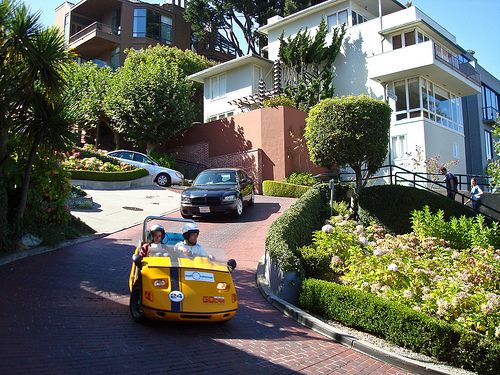 Product naming is an important part of branding and marketing, and one where international businesses can make costly mistakes if they fail to understand local language, slang, and all the connotations of a given word.
Product naming is an important part of branding and marketing, and one where international businesses can make costly mistakes if they fail to understand local language, slang, and all the connotations of a given word.
Here are a couple of potential branding disasters in the car industry, courtesy of the Institute of Translation and Interpreting’s Scottish network:
FITTA This car was hastily rebranded the “Jazz” for the Scandinavian market after Honda discovered that “fitta” is a colloquial term for a woman’s private parts in no less than 3 Nordic languages.
PINTO Car-maker Ford thought the better of this name in Brazil when it transpired that “Pinto” is Brazilian Portuguese slang for small male genitals. Not quite the image they were trying to promote! (The car was rebadged “Corcel”, which has a suitably manly meaning of “horse”)
PAJERO This word is a colloquialism denoting masturbation in Spanish, so Mitsubishi saw the wisdom of renaming its “Pajero” SUV as the “Montero” in Spanish-speaking countries.
The New York Times recently published an article on the exotic names surfacing in China’s car industry: the Freedom Ship, the Beauty Leopard and the King Kong, for example, are models produced by the Geely company. I’m not sure I’d want to drive around in a King Kong. Or in a Roewe:
Shanghai Auto came up with Roewe, a Roverish name with Chinese characteristics. However, one can only assume that quiet consternation engulfed company headquarters when it was discovered that the Chinese version for Roewe — Rongwei — sounds close to English-language Wrong Way.
Oh dear.
Have you got any examples of branding or product-naming gone wrong? Let us know in the comments.
More about car-naming:
The car industry’s poet laureate, or what’s in a name.
The photo, courtesy of David Perez, shows cars zig-zagging down San Francisco’s Lombard Street.
By Marian Dougan
13 responses
The baby-food Gerber is one. “gerber”, in colloquial French, means “to puke”… I’ve still seen Gerber jars on the shelves in French supermarkets. :)
Yikes!
My sister was driving around in a Ford Kuga for a while, but apparently I was the only person who found it amusing…
Ah, sisterly love…
Actually just read in N. Kelly & J. Zetzsche’s “Found in Translation” book that ‘Kuga’ also means ‘plague’ in Croatian and Serbian!
Too funny!
Other examples (although these companies were wise enough not to market with that name in Spain) are Nissan Moco, “snot”, and Ford Nika, which sounds like the imperative form of “to fornicate”.
Love the car ones – made me chuckle. Can’t think of car one but Pschitt fizzy drink didn’t tempt me, nor did Kick-self (self service Kickers store in France) and Grill-self for a motorway cafe!
Oh yes, Pschitt – certainly not very appetising, although I can see the onomatopoeic (phew – spelling!) effect they’re aiming for. I hadn’t seen Kick-self or Grill-self — the latter would make an apt name for a tanning salon here in Glasgow.
Well, one brand name I find amusing is Kadus for hair products… For Italian speakers it doesn’t seem to suggest the desired outcome (cadere = to fall) ;-)
I’d never heard of Kadus – but no, it certainly wouldn’t give the right message in Italy. It doesn’t sound very soft appealing for English-speakers either, IMO.
Two car names that did not work very well in the Italian market were Musso, which in some northern Italian dialects means “donkey”, and Sorento, which looks like a spelling mistake of Sorrento.
The best / worst car name, going back a few years, was the Vauhall Nova. This did not play well in Spain, where “no va” means “won’t go”.